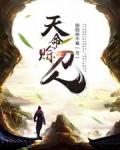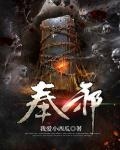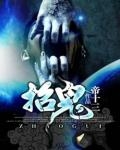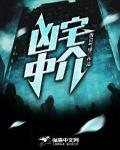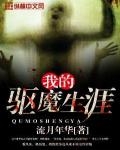Requiem Chapter 18: The Successor of Maoshan (2)
After the "guiding path", the filial son burns paper and mourns. After hearing the crying, the neighbors will come to help with the funeral. First, ask a Feng Shui master (generally, a undertaker is more professional) to check the grave site and the auspicious day for the funeral; second, ask a deacon; third, ask someone to announce the death; fourth, ask a chef.
At this time, the filial son was extremely sad, and the whole world was dark. Everything was managed by the undertaker, and the chef helped to prepare the funeral food. When a person with a title or a person with achievements died, a funeral meeting was organized, and the department came forward to deliver a eulogy for him.
There are two types of burial: "big burial" and "small burial".
Xiaolan refers to dressing the deceased. According to historical records, in ancient times, Xiaolan was performed inside the bedroom door on the morning of the second day after death. At that time, Xiaolan clothes were first displayed in the room, and then the bed was laid out, and then the dressing ceremony was held. The host and the hostess had to take off the ornaments on their heads, put their hair in a bun, and men had to expose their arms. Everyone had to cry continuously to show their extreme grief.
The undertaker begins to dress the dead, first by laying mats on the bed, then the quilts. The texture of the mats depends on the status of the dead. Regardless of whether the dead are noble or humble, the dead should wear 19 sets of new clothes. After dressing, the undertaker wraps the body with a quilt and then ties it tightly with a quilt. After that, the cloth bag is put on the body, and then the quilt is covered to cover the body.
In folk customs, it is taboo to use satin for burial clothes and quilts, because "satin" is homophonic to "duanzi", which means "cut off sons", and people are afraid of being punished by having no offspring. People usually use silk, which is homophonic to "chouzi", which means "chouzi", which means "much sons", and can bless the descendants with many sons and grandchildren.
It is taboo to use fur to make burial clothes. Although animal skin is a rare and precious thing, it is of no benefit to the dead, but it can be useful to the living. There is also a saying that if animal skin is used to make a quilt, the dead will be reincarnated as an animal in the next life. Another saying is that from the perspective of "whole corpse", it is said that the human corpse and animal skin will be mixed together and cannot be distinguished. Burial clothes cannot be made of cloth with the word "yang" on it. Burial clothes are worn by the dead. Cloth with foreign characters will make the burial clothes have the meaning of "yang", which is not good for the dead in the underworld.
After the burial clothes are put on, some places will also hold activities such as opening the eyes and closing the eyes. After the deceased is dressed, take a bowl of warm water, dip a piece of new cotton in the water, and scrub the eyes of the deceased. This is called opening the eyes, which is also done by filial sons. It is said that if the dead are not opened, they will be blind in the next life. In places around Quanzhou, the bereaved family will tie up the chickens, dogs and other animals in the house. This is because people believe that cats or other animals will resurrect if they get close to the corpse.
The corpse will jump up and cling to the living or other things tightly. The undertaker should remind the mourning family to carefully guard the corpse and the coffin, perform filial piety with all their heart, and not treat the dead person lightly.
The "Da Lian" refers to the collection of the corpse's coffin, which is commonly known as "returning to the big house" among . This means that the deceased is isolated from the world and bids farewell to his relatives for the last time, so the Da Lian ceremony is very grand.
The coffins used to hold corpses are made of pine and cypress, and it is taboo to use willow. Pine and cypress symbolize longevity. Willow does not produce seeds, which may lead to extinction. In some places, cypress is mixed with fir to make coffins. It is said that a coffin made entirely of cypress will be struck by lightning. After the coffin is made, it is placed there and cannot be moved. It is said that moving it at will will be bad for the person. The outside of the coffin is usually painted vermilion and written in gold. There are also paintings of flowers, birds and people.
The big coffin is held on the second day of the small coffin, that is, on the third day after the person's death, to wait for his resurrection. According to folk customs, a layer of straw should be laid on the bottom of the coffin, and then a layer of yellow paper should be laid on it, which means that the soul of the deceased can ascend to heaven.
The Seven Star Board is for longevity. A cotton mattress embroidered with yellow silk is placed on the Seven Star Board, commonly known as Pujin. The mattress is embroidered with patterns such as the sea teeth and the Eight Immortals Crossing the Sea, which means to help the soul of the deceased ascend to heaven and become an immortal. The Tuo Luo Sutra Quilt and Ruyi Longevity Pillow, which were popular in Beijing bereaved families in the late Qing Dynasty, all carry this meaning.
When the host "puts the body in the coffin", it is the best time to show and express the filial piety of the children. It is also the best occasion for relatives to formalize their filial piety.
Therefore, the family members would beat their chests and cry loudly. Before closing the coffin, some funeral objects would be placed inside. The folk custom is to let the deceased hold gold in his left hand and silver in his right hand. Most people would let the deceased hold a small gold ingot weighing one or two taels in his left hand, and a small silver ingot or silver weighing one or two taels in his right hand. The poor would have to put some copper coins, or coins commonly used in society at that time, such as large copper coins, small steel plates, etc. At the very least, a handkerchief would be placed in the deceased's hand.
Therefore, tombs of all dynasties have been robbed, especially the tombs of emperors, where the burial objects are mostly rare treasures, attracting countless covetous people.
In order to ensure that the deceased can leave a complete body, it is said that everything that fell off the deceased's body during his lifetime should be placed in the coffin. For example, the teeth that fell off in old age, and the nails cut during the bathing. At this time, the family members must put them in the coffin. In addition, in the past, the genitals of eunuchs who were cut off for "cleansing" were also placed in the coffin at this time, saying that "in the next life, you want to be reborn with a complete body."
After the corpse and the burial objects are placed properly, the undertaker will then nail the coffin lid, which is called "suppressing nails" in folklore. Generally, seven nails are used to press the coffin lid, commonly known as "descendant nails", which is said to make the descendants prosperous.
After the body is put into the coffin, it is believed that if the rain hits the coffin, the descendants will suffer from poverty. Before and after the body is put into the coffin, the coffin is placed in the hall until the funeral.
Old Zhao said that the rituals of coffin burial are as vast as the sea of clouds, and there is a lot of knowledge involved. Even if you study for a lifetime, it would be difficult to master them all.
"Let me ask you one more question. Do you regret it?" His voice was still as hard as stone, and he spoke every word.
After hearing what Old Zhao said, Yin Hui's expression kept changing. First he was confused, then painful, then hesitant, and finally he was determined: "No, I have never regretted it, because it was you, Master, who guided me to practice Taoism and made me understand many truths that I could never understand before. As the saying goes, all living beings suffer, but what are living beings?"
"I am very glad that I understand this truth. It is precisely because I have nothing that I know the value of ordinary life. If I can live that kind of life one day, I believe that I should cherish it more than others. It is said that God gives great responsibilities to those who are capable of them. Maybe this is the truth ! I can't keep running away. Some things always need to be done by someone. Since God has chosen me, I will use my own hands to protect my family and this land. I believe that this should be the meaning of our profession!"
After listening to Yin Hui's words, Old Zhao finally smiled with relief: "Good boy, I was not wrong at the beginning. You really have something that many people don't have. In fact, I have thought about it countless times over the years. Now many ancient things have disappeared. The main reason may be that they can no longer keep up with the relationship in this society. Therefore, we undertakers will inevitably follow this path in the future and disappear on the stage of history. Disciple, I know your suffering. These burdens are too heavy on you. If one day, Taoism really reaches this point, you must live well. You must know that the so-called highest realm of Taoism, 'Zhou Tian Yi Qi', means to be upright and have a clear conscience. Do you understand?"
Yin Hun nodded heavily and took Old Zhao's words to heart.
When Old Zhao saw that Yin Hun had taken note of it, he said to him with some relief: "Wait a moment. I have been preparing your graduation ceremony for a year!" After that, he went into the bedroom.
I only heard some rummaging inside, and after a while, Old Zhao came out holding a long box. The box was tied with several layers of thick black cloth and was spotless.
Old Zhao washed his hands and solemnly untied the black cloth. When he opened the box, he saw a turquoise-green sword. After a closer look, he found that the color was not from the sword itself, but from the rust on the copper coins, some of which had condensed into many small bumps. Yin Hui had studied chemistry and knew that this was a chemical reaction, but he couldn't tell exactly how much iron was oxidized. Anyway, it should be an antique with a long history. Next to the sword, there were two small things lying quietly. One was a small white leather bag, which was very inconspicuous and no one knew what it was for. The other was a bead with a strange color. Light flowed inside, as if it contained some indescribable liquid.
Old Zhao stroked his goat beard and said, "The ancestor had eight treasures in total, which correspond to the numbers of the Eight Trigrams and each has its own strengths. Unfortunately, dynasties changed and wars continued, so only five of them can be passed down. A year ago, I passed on to you the Soul Summoning Bell and the Compass. Now I will give you the remaining ones, which are the Money Sword, the Hundred Storage Bag, and the Mysterious Female Pearl. Please take good care of them."
"Yes!" Yin Hui knew very well that his fate with Old Zhao was over. He also knew very well that his life would never be able to get rid of this person's mark...
A relationship that transcends blood ties and an unswerving belief forever connect two men who are poles apart, and cannot be severed even after thousands of years.

